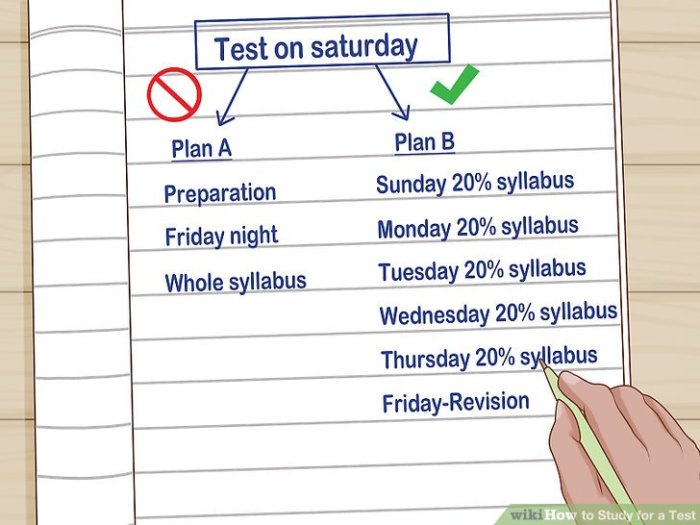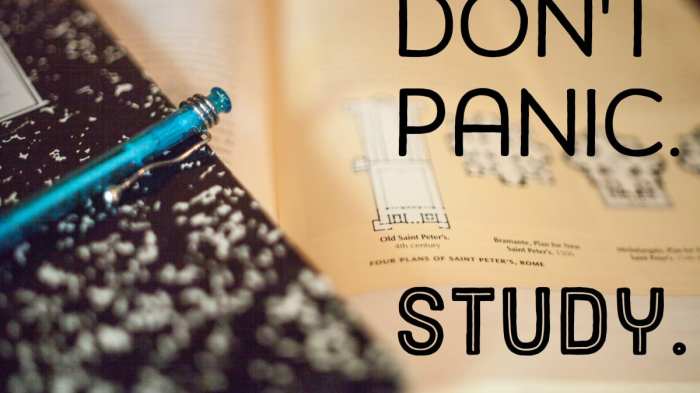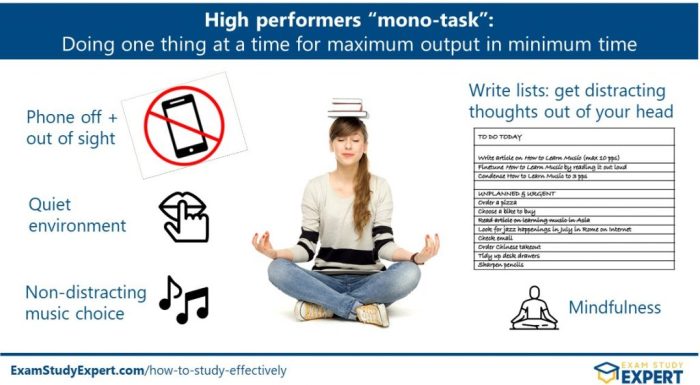Embark on your journey to acing that big exam in just 2 weeks with our detailed guide on effective study strategies and healthy habits.
Learn how to make the most out of your limited time and optimize your study sessions for optimal results.
Planning your study schedule

When preparing for a big exam in just 2 weeks, it is crucial to plan your study schedule effectively to make the most out of your limited time. Here are some key strategies to help you create a productive study plan:
Identify key topics to focus on
- Review the exam syllabus or study guide to identify the most important topics that are likely to be covered in the exam.
- Focus on areas where you feel less confident or need more practice.
- Prioritize topics that carry more weight in terms of marks or importance.
Create a daily study timetable
- Divide your study time into manageable blocks, focusing on a few subjects or topics each day.
- Set specific goals for each study session to stay on track and monitor your progress.
- Include time for revision and practice tests to reinforce your learning.
Prioritize difficult subjects first
- Tackle the most challenging subjects or topics when your mind is fresh and alert.
- Break down complex topics into smaller parts to make them easier to understand and remember.
- Seek help from teachers, tutors, or study groups if you are struggling with particular subjects.
Allocate breaks for rest and relaxation
- Include short breaks between study sessions to recharge your brain and prevent burnout.
- Engage in activities like exercise, meditation, or hobbies to relax and reduce stress.
- Ensure you get enough sleep each night to allow your brain to consolidate information and prepare for the next day’s study sessions.
Effective study techniques

When preparing for a big exam in just 2 weeks, it’s crucial to utilize effective study techniques that will maximize your learning potential and retention of information. By incorporating active learning methods and engaging in practice tests, you can better assess your knowledge and ensure you are fully prepared.
Use active learning methods like summarizing notes
- Summarizing notes helps condense information into key points, making it easier to remember.
- By actively engaging with the material, you are more likely to retain the information for the exam.
- Try creating flashcards or mind maps to summarize complex topics and concepts.
Engage in practice tests to assess knowledge
- Practice tests simulate exam conditions and help you familiarize yourself with the format and types of questions.
- Identify areas of weakness through practice tests and focus your studying on those topics.
- Reviewing your answers and understanding why you got certain questions wrong can improve your knowledge retention.
Teach the material to someone else for better understanding
- Explaining concepts to someone else requires you to fully understand the material yourself.
- Teaching someone else can help reinforce your own knowledge and highlight areas where you need further clarification.
- Consider forming a study group where you can take turns teaching and learning from each other.
Utilize mnemonic devices for memorization
- Creating mnemonic devices, such as acronyms or rhymes, can help you remember complex information more easily.
- Associate key terms or concepts with familiar images or phrases to aid in recall during the exam.
- Practice using mnemonic devices regularly to reinforce your memory of important details.
Healthy habits during exam preparation

Maintaining healthy habits during exam preparation is crucial for optimal performance. By taking care of your physical and mental well-being, you can enhance your focus, retention, and overall academic success.
Ensure adequate sleep each night
Getting enough sleep is essential for cognitive function and memory consolidation. Aim for 7-9 hours of quality sleep each night to feel refreshed and alert during your study sessions and exams.
Stay hydrated and maintain a balanced diet
Proper hydration and nutrition are key factors in supporting brain function. Drink plenty of water throughout the day and consume balanced meals rich in nutrients to fuel your mind and body.
Incorporate physical activity or breaks for movement
Regular physical activity can improve focus, mood, and energy levels. Take short breaks during study sessions to stretch, walk, or engage in light exercise to reduce fatigue and enhance cognitive performance.
Practice mindfulness or meditation to reduce stress
Stress can negatively impact your studying and test-taking abilities. Incorporate mindfulness techniques or meditation practices into your routine to promote relaxation, reduce anxiety, and improve mental clarity.
Final Thoughts

In conclusion, mastering the art of studying for a big exam in a short timeframe requires dedication, focus, and the right approach. Use these tips to boost your preparation and tackle your exam with confidence.